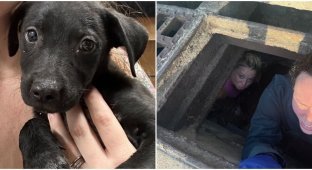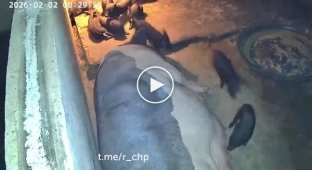The story of Ned Kelly - Australia's Robin Hood. 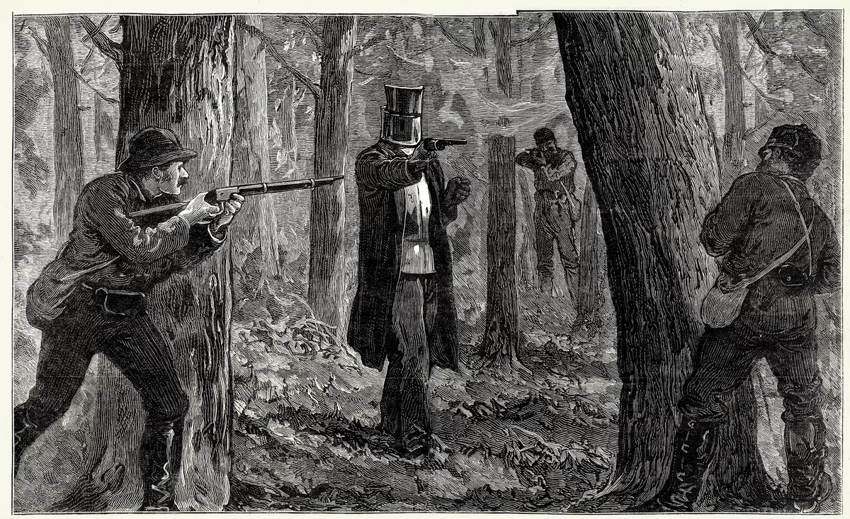
There is a character in Australian history who is still debated. Some call him a hero, a kind of Robin Hood. Others say that this is just a cunning bandit who was able to present his actions in such a way that the average person bought into this romantic flair.
This man's name was Ned Kelly. We will tell you the story of Ned, and you can draw conclusions for yourself about who he is: a criminal, or a person who was forced to live like that by the society of that time.
Descendant of an Irish convict
His father, John "Red" Kelly, was an Irish convict from County Tipperary in Ireland who was exiled to Australia in 1841 for stealing two pigs. And my mother is a girl named Ellen who moved with her father that same year. They married in 1850.
In 1853, John went to the gold fields, where he earned enough money to buy a farm. Ellen gave birth to Ann Kelly early in 1854, and Edward "Ned" Kelly in December of the same year. The couple had seven children and in 1864 they sold their land in Beveridge and moved north.
John drank heavily. After serving six months of hard labor for stealing a calf in 1865, John tragically drank himself to death and died on December 27, 1866, leaving Ned Kelly to provide for his large, impoverished family.
Ellen Kelly moved her family to a cabin in northern Victoria where her father owned land.
To make ends meet, Ellen brewed and sold grog (a drink made from vodka or rum mixed with sweetened hot water or tea).
One day, their family was approached by Harry Power, an Irish bandit who was on the run after escaping from prison.
The family became friends with Harry, and Harry soon offered to take 14-year-old Ned under his wing. Ned couldn't resist the opportunity to earn some money for his family and took the opportunity to follow the instructions of Harry, who introduced him to the life of a bandit.
The first experience immediately ended in detention. Ned was jailed for assaulting a Chinese man. The charges were dropped after 10 days in jail.
For being an accessory to the crime of Harry Power, he was jailed for seven weeks until the charge was again dropped. Accustomed to the fact that charges were not brought to fruition, Kelly continued to engage in criminal activities.
From newbie to serious bandit
After receiving three years for possession of a stolen mare and being released in 1874, Kelly did honest work in logging. But he quickly got bored and he and his stepfather began stealing horses.
On April 15, 1877, Kelly was forced to go on the run again when he and his brother Dan shot and killed a policeman who was trying to arrest them for horse theft. Their mother, Ellen, was jailed with her baby in her arms for her role in the crime, and Kelly vowed to avenge her.
The constable, by the way, violated all job descriptions when he went to arrest the brothers. He was completely drunk when he broke into Kelly's hut and attacked Kate, Ned's older sister.
Ellen shot the constable in the wrist to protect Kate. Then she tried to resolve everything peacefully. She treated the policeman’s wounds, fed him, gave him a drink, in full confidence that the conflict was over.
The policeman testified that he was attacked by the Kellys and their supporters, and Ned (who was probably not even present during the entire incident) shot him three times. After that, he completed what he started.
Flight and war with the state
Ned and Dan were hiding out in the Wombat Ranges and were soon joined by their pals Joe Byrne and Steve Hart. The four became known as the Kelly Gang. 
They found a romantic justification for their illegal actions. In their 56-page letter, they said Irish Catholics and Victoria's poor were oppressed by Australian leaders. It was this letter that made Kelly a folk hero.
Kelly declared war on the police:
"...to give these suffering people innocence, justice and freedom. If not, I will be forced to show some colonial tricks that will open the eyes not only of the police and Victorians, but of the entire British army...".
From this point on, the Kelly Gang committed two major bank robberies to support themselves and help their supporters and the poor. It is because of these events that Ned is considered Robin Hood.
A reward was offered for Ned and his gang. The police wanted to put these guys in jail at any cost. And the price turned out to be high.
A team of four armed police officers was sent to search for them. However, the gang surprised them at Stringybark Creek and three policemen were killed, further increasing the £8,000 price on Ned's head. Huge money by the standards of the late 19th century.
Armored suit and the last battle 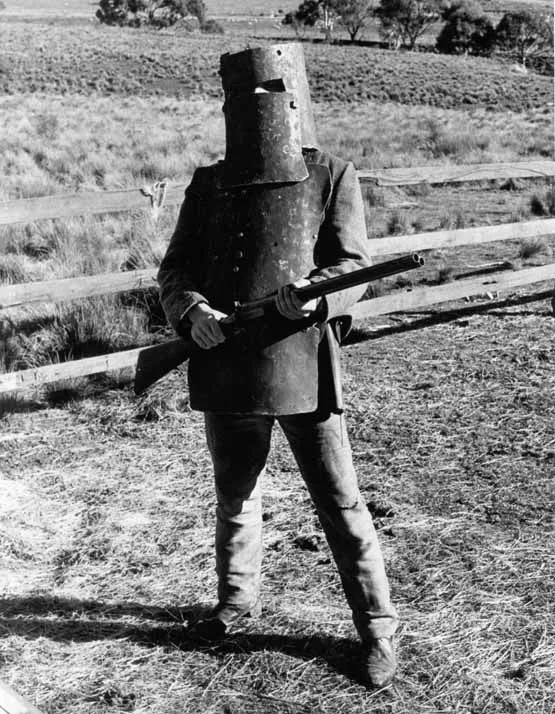
The bandits made themselves armor from improvised materials, after which their style became recognizable, and they wrote in the newspapers of the time.
Three gang members wore wooden armored suits and helmets made from plow boards. Sympathetic farmers gave them the boards, and a local blacksmith helped them make the costumes.
But the most effective suit was Ned's. It was made of 6 mm thick iron. The armor included a long breast plate, shoulder pads, shields, an apron and a helmet. The helmet resembled a tin can without a top. It had a long slit for the eyes. The helmet was secured with leather straps. 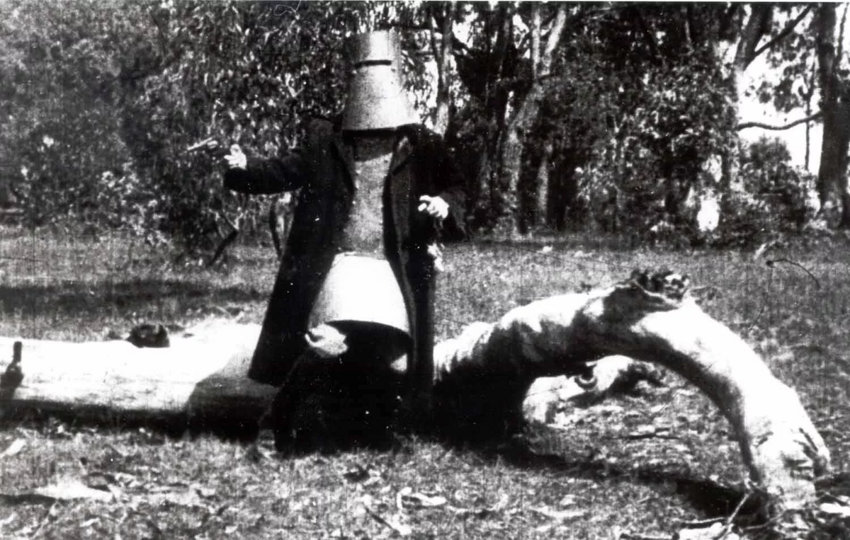
Ned Kelly's armor weighed 44 kilograms, and he was protected on all sides, while the rest of the gang were only protected from the front.
During a shootout with the police, Ned was hit by several bullets, but none penetrated his armor. Although some bullets caused serious bruising.
The most striking part of Ned Kelly's story was the siege of the Glenrowan Inn. After more bank robberies, in 1880 the gang took 60 hostages. They say that the hostages themselves felt great: they drank, ate and played cards.
46 police officers arrived at the scene. For seven hours they fired on Kelly's gang.
Kelly participated in this fight wearing the makeshift armor that made him famous. In the early morning of June 28, he put on an armored suit and emerged from cover, suddenly attacking the enemy with a pistol. 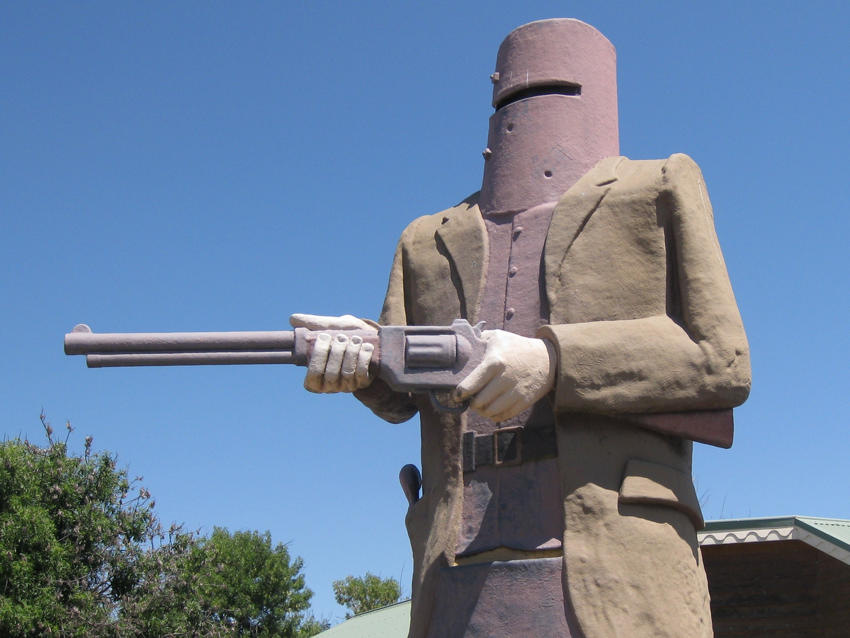
Monument to Ned Kelly
He moved calmly, dodging from tree to tree. The bullets flew off his armor. He wounded several officers until they hit him in the legs and groin, forcing Ned Kelly to the floor. Kelly's remaining accomplices were killed.
End of Kelly's story 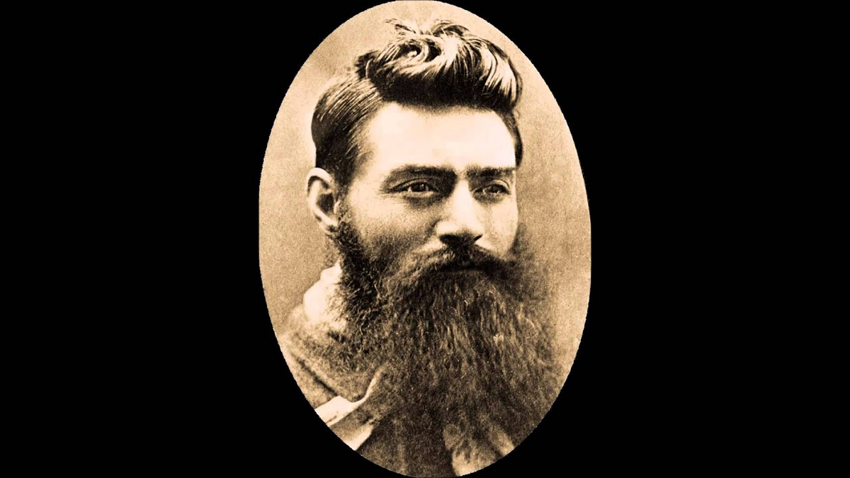
Ned Kelly without a helmet
Ned was imprisoned in Melbourne Gaol. There he wrote a long letter to the authorities, in which he drew attention to the discrimination against poor Irish settlers. He was then tried and, despite public protests, sentenced to death. 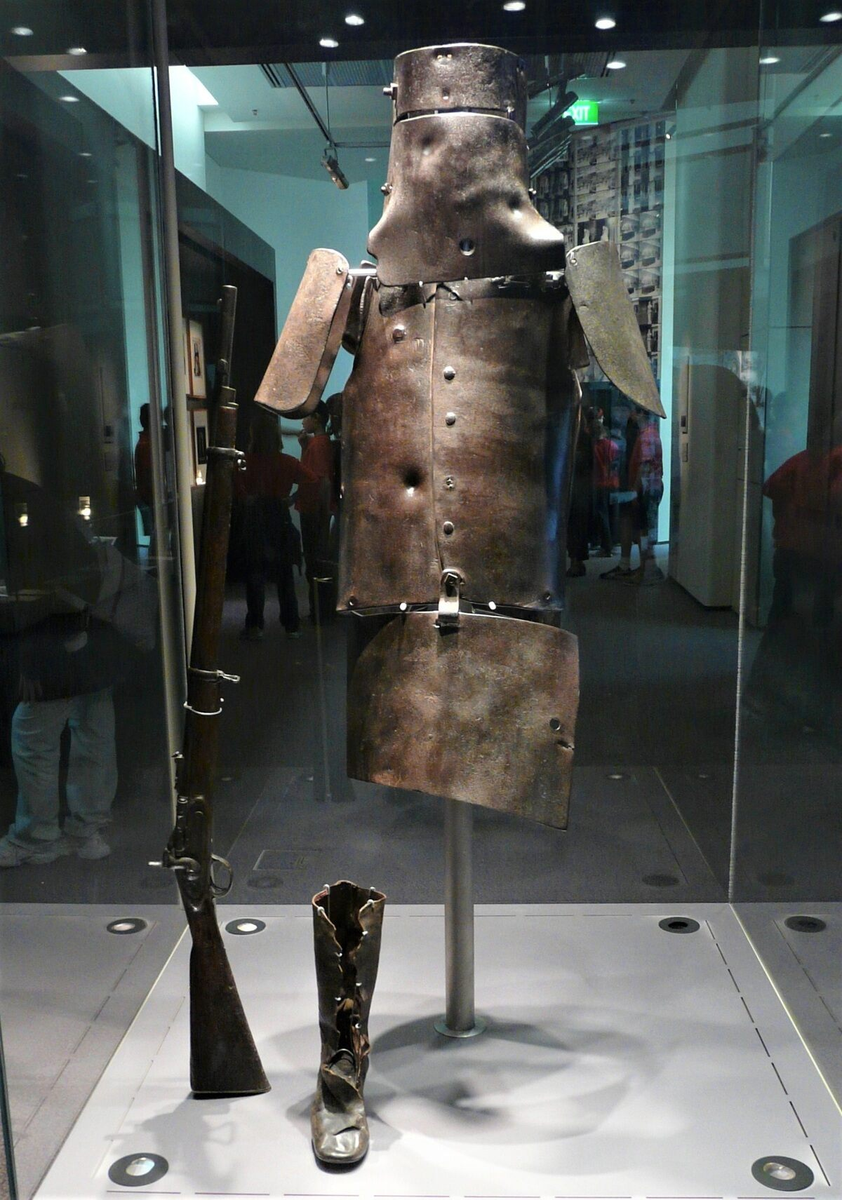
Ned's costume is still kept in the Australian Museum.
Ned Kelly was hanged on November 11, 1880 at Melbourne Gaol. His last words, “Such is life,” as well as the legends about his life became immortal.
Add your comment
You might be interested in:













